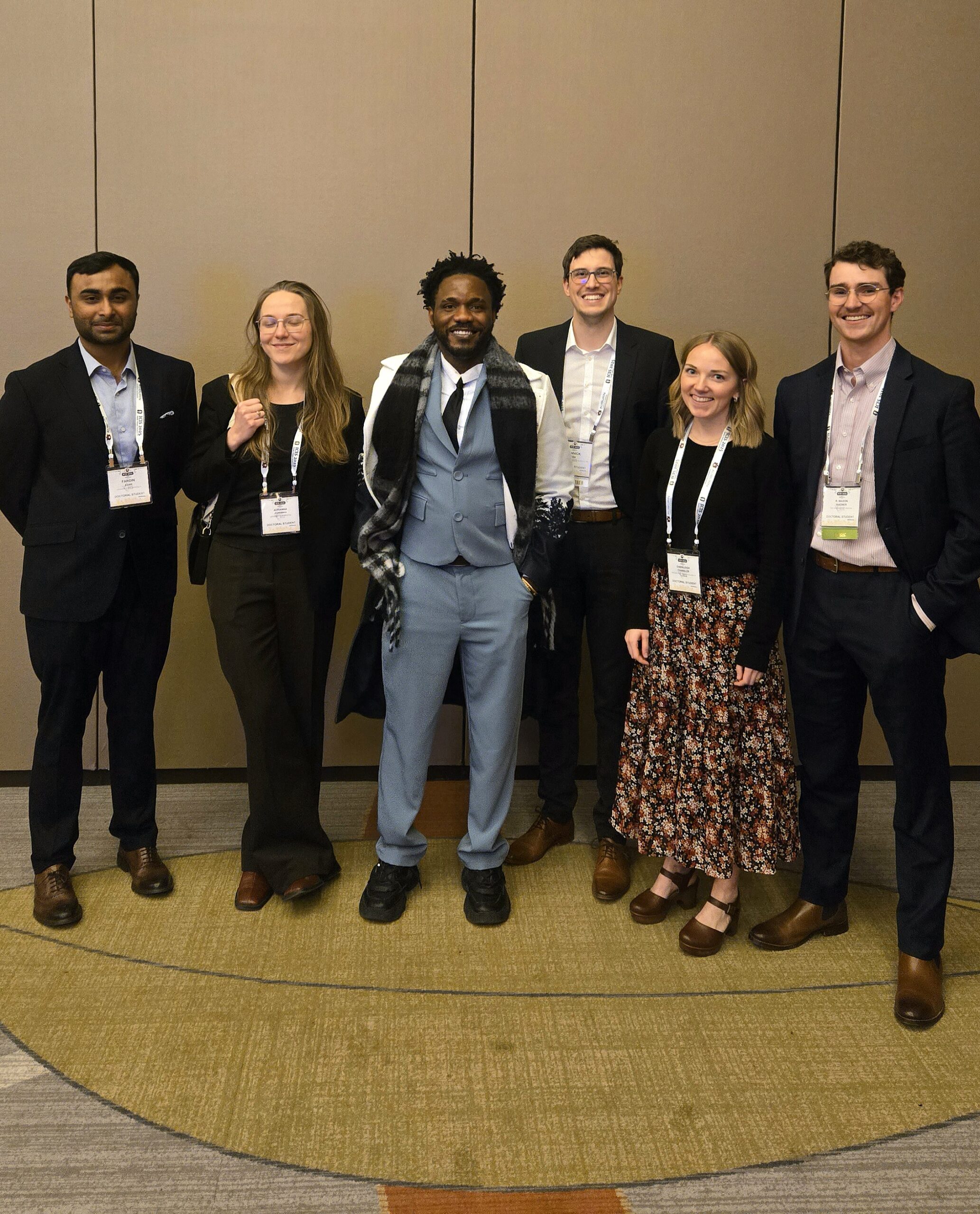I believe that the first thing every PhD student should master is the art of crafting a compelling research question, even before anything else. If you can’t formulate a suitable research question, then there’s really no need to conduct the research. As a first-year PhD student, this can be a daunting task. I decided to write about this not as an expert but as a learner—the best way I feel motivated to learn is through writing, and sharing what I learn keeps me consistent. I can’t overstate how much this blog has kept me on track while also making learning fun. I always look forward to sharing everything I’m learning.
If you are embarking on a research journey, some of the things you should keep in mind are mastering methodologies and theories. While learning research methods is structured and supported by ample resources, formulating a compelling research question is often an unstructured and challenging endeavor. This guide aims to demystify the process, providing practical advice and examples to help you develop clear, impactful research questions that will form the cornerstone of your study.
Building a Strong Foundation: Master Methods and Theories
Before you can craft an effective research question, it’s essential to have a solid grasp of the research methods and theories relevant to your field. Presently I still struggle with theories, but I know I’m getting there because room wasn’t built in a day. This foundation allows you to apply these tools appropriately when investigating your chosen phenomenon.
Example: If you’re studying the impact of artificial intelligence (AI) on employment, familiarize yourself with quantitative methods like statistical analysis, as well as theories related to technological change and labor economics.
The Importance of Choosing the Right Research Problem
Selecting a research problem is arguably the most critical decision you’ll make as a researcher. While you can learn methods and theories through study and practice, identifying a deep, substantive problem requires intuition and insight into your field.
Tip: Focus on phenomena that not only interest you but also fill a gap in existing knowledge or address a pressing issue.
Example: Instead of broadly studying “technology in business,” narrow it down to “how remote work technologies impact team cohesion in multinational corporations.”
Common Pitfalls in Formulating Research Questions
Understanding common mistakes can help you avoid them. Here are some prevalent problems and how to steer clear of them:
a. The “Monologuing” Problem
Description: If you need five minutes to explain your research question, it’s likely too complex or not well-defined.
Solution: Aim for a concise, clear question that can be stated in one or two sentences.
❌Problematic Question Example: “Given the rapid advancements in renewable energy technologies and the varying adoption rates influenced by socioeconomic factors across different regions, how can policies be structured to optimize energy distribution and consumption patterns in urban and rural settings?”
✅Revised Question: “How can policy changes improve the adoption of renewable energy technologies in urban areas?”
❌ “Well, you see, I’m looking at how technology affects workplace dynamics, but specifically in terms of how different generations adapt, and considering the cultural aspects, and also the organizational structure…”
✅ “How do generational differences influence technology adoption in workplace teams?”
b. The “So What?” Problem
Description: A research question that lacks significance or fails to address an important issue.
Solution: Ensure your question has clear relevance and addresses a problem others care about.
❌Problematic Question Example: “What are the different types of coffee preferences among college students?”
✅Revised Question: “How do caffeine consumption patterns among college students affect their academic performance?”
❌ “What color of office furniture do IT professionals prefer?”
✅ “How does office design impact productivity in technology companies?”
c. The “Solving-the-World” Problem
Description: Tackling a question that’s too broad or ambitious to be answered with available resources.
Solution: Narrow your focus to a manageable scope within your means.
❌Problematic Question Example: “How can we eradicate poverty worldwide through economic policies?”
✅ Revised Question: “What impact do microloan programs have on poverty reduction in rural communities in Country X?”
❌ “How can we solve global cybersecurity threats?”
✅ “What cybersecurity measures are most effective for small businesses with limited IT budgets?”
The “Insolvability” Problem
Description: A question that cannot be answered meaningfully due to logical flaws or practical impossibilities.
Solution: Reframe the question to make it answerable within your constraints.
❌Problematic Question Example: “What will be the psychological effects of space travel on humans 200 years from now?”
✅Revised Question: “What are the current psychological challenges faced by astronauts during long-duration space missions?”
❌ “How will current coding practices impact developer health over the next 30 years?”
✅ “What immediate health impacts do developers report from current coding practices?”
The “Multitude” Problem
Description: Attempting to answer too many questions at once, diluting the focus of your research.
Solution: Concentrate on one primary research question.
❌Problematic Question Example: “What are the challenges of online education, how do they affect student engagement, and what technological solutions can be implemented to improve outcomes?”
✅Revised Question: “What factors influence student engagement in online education platforms?”
❌ Research attempting to answer:
- What are the challenges in IT implementation?
- How do employees respond to new technology?
- What is the cost-benefit ratio?
- How does this affect productivity?
- What are the long-term implications?
✅ Focused research question: “What are the primary factors affecting employee acceptance of new enterprise software?”
Categories of Questions to Avoid:
- Obvious Questions: “Is exercise beneficial for health?”
- ❌ “Do companies face challenges when implementing new technology?”
- ✅ “What specific factors determine successful technology implementation in mid-sized companies?”
- Irrelevant Questions: “Does the color of packaging affect the nutritional value of food?”
- ❌ “How does office temperature affect code quality?”
- ✅ “How do environmental factors in development teams impact code quality?”
- Absurd Questions: “Is the Earth flat?”
- ❌ “Can artificial intelligence replace all human jobs by 2025?”
- ✅ “Which specific job functions are most likely to be automated by AI in the next five years?”
- Definitional Questions: “What is the definition of democracy?”
- ❌ “Is digital transformation characterized by technological change?”
- ✅ “How do successful companies manage the human aspects of digital transformation?”
- Affirmation Questions: “Can a new app improve task management for professionals?”
- ❌ “Can a mobile app be developed for project management?”
- ✅ “What features make project management mobile apps effective for remote teams?”
Crafting an Effective Research Question: A Step-by-Step Guide
Step 1: Identify the Problem Domain
Example: “Organizations invest heavily in new information technology to seek benefits from these investments.”
Step 2: Specify the Phenomenon
Example: “Many of these benefits never materialize because employees do not use the technologies.”
Step 3: Identify the Knowledge Gap
Example: “Current literature focuses on technology acceptance but not on technology rejection.”
Step 4: Formulate the Question
Example: “”What factors contribute to employee resistance to adopting new workplace technologies?”
A good research question should be:
- Clear and Concise: Easily understandable without the need for lengthy explanations.
- Focused: Specific enough to be thoroughly explored within the scope of your study.
- Researchable: Feasible to investigate given your resources and time constraints.
- Significant: Addresses an important gap in knowledge or solves a pressing problem.
- Complex: Requires analysis and cannot be answered with a simple “yes” or “no.”
Guiding Questions to Help You:
- In which field of research does your question reside?
- Do you understand the existing literature in this field?
- What are the unsolved problems or open questions?
- How does your question fill a gap or clarify existing knowledge?
- Who will benefit from the answer?
5. Motivating Your Research Question
A well-motivated research question is the result of logical reasoning and a clear understanding of its significance.
Steps to Motivate Your Question:
a. Identify the Problem Domain
Example: “Organizations are investing billions in cybersecurity measures.”
b. Highlight an Important Phenomenon
Example: “Despite these investments, data breaches due to employee negligence remain high.”
c. Point Out a Problem with Existing Knowledge
Example: “Current research focuses on technological solutions but neglects the human factors contributing to security breaches.”
d. Formulate the Research Question
Example: “How do employee attitudes toward cybersecurity affect the effectiveness of organizational security measures?”
6. Evaluating the Timing and Impact
- Is the Timing Right? Ensure your topic is current and relevant. Example: Researching remote work technologies is timely due to the recent shift towards remote employment.
- Who Cares About the Answer? Identify stakeholders who will benefit. Example: HR managers, IT departments, and employees all have a vested interest in improving remote work experiences.
- What is the Potential Impact? Consider how your findings could influence practices or policies. Example: Your research could lead to better implementation strategies for remote work technologies, improving productivity and employee satisfaction.
7. Practical Tips for Developing Your Research Question
- Engage Deeply with Literature: Understand the current state of research to identify gaps. Example: Conduct a literature review on employee resistance to new technology.
- Seek Feedback: Discuss your ideas with advisors and peers to refine your question. Example: Present your proposed question in a seminar and incorporate constructive feedback.
- Stay Focused: Keep your question specific to avoid scope creep. Example: Limit your study to a particular industry or technology type.
- Be Open to Refinement: Your question may evolve as you delve deeper into the research. Example: You might narrow your focus from general technology resistance to resistance related to a specific software tool.
Checklist for Evaluating Your Research Question
- Can you state it in one sentence?
- Does it address a clear knowledge gap?
- Is it feasible within your resources?
- Does it have clear practical or theoretical significance?
- Can it be answered with available research methods?
- Is it specific enough to be meaningful?
- Is it broad enough to be interesting?
Tips for Success
- Start Broad, Then Narrow
- Begin with your general area of interest
- Progressively refine based on literature review
- Focus on specific aspects that intrigue you
- Test Your Question
- Share it with peers and mentors
- Try to explain it to non-experts
- Write a brief motivation paragraph
- Stay Flexible
- Be prepared to refine your question as you learn more
- Keep track of related questions for future research
- Remember that good research often leads to more questions
Conclusion
Formulating an effective research question is a critical step that sets the direction for your entire study. By avoiding common pitfalls, ensuring your question is significant and researchable, and clearly motivating its importance, you lay a strong foundation for impactful research. Remember, a well-crafted question not only guides your investigation but also communicates its relevance to others.
Final Example: Bringing It All Together
- Initial Broad Interest: “I want to study climate change.”
- Narrowed Phenomenon: “The impact of climate change on agricultural practices.”
- Identified Knowledge Gap: “Limited research on how small-scale farmers in Region X are adapting to changing weather patterns.”
- Motivated Research Question: “What adaptive strategies are small-scale farmers in Region X employing in response to climate change-induced weather variability?”
By following these guidelines and utilizing the examples provided, you can transform a general area of interest into a focused, meaningful research question that drives your study and contributes valuable knowledge to your field.
Research Question Practice Examples: From Problematic to Perfect
Practice Set 1: Converting Monologue Problems into Focused Questions
Technology & Business Domain
Problematic Version: “I want to study how companies are implementing artificial intelligence and machine learning, and how it affects their workforce, particularly in terms of job satisfaction and productivity, and also looking at how different departments adapt differently, plus the impact on customer service quality, while considering the financial implications…”
Improved Versions:
- “How does AI implementation affect employee job satisfaction in customer service departments?”
- “What is the relationship between ML adoption and productivity in financial services firms?”
- “How do different departments within tech companies adapt to AI integration?”
Healthcare Research
Problematic Version: “I’m interested in looking at how telemedicine is changing healthcare delivery, and the way patients interact with their doctors, and whether older patients are comfortable with it, and if it’s saving money for hospitals, and the quality of care aspects, plus the technical challenges…”
Improved Versions:
- “How does telemedicine affect patient satisfaction among adults over 65?”
- “What impact does telemedicine have on hospital operational costs?”
- “How does telemedicine influence doctor-patient communication quality?”
Practice Set 2: Fixing “So What” Problems
Education Technology
Weak Questions:
- “What color do students prefer for educational apps?”
- “How many clicks do teachers make in learning management systems?”
- “Do students prefer round or square buttons in educational software?”
Strong Questions:
- “How does UI color scheme influence student engagement in educational apps?”
- “What interface design elements most effectively reduce teacher cognitive load in LMS?”
- “How do UI design choices impact student learning outcomes in educational software?”
Environmental Research
Weak Questions:
- “What type of trees do people plant in urban areas?”
- “How many people recycle in different neighborhoods?”
- “What color are most recycling bins?”
Strong Questions:
- “How does urban tree selection impact local air quality improvement?”
- “What factors influence recycling participation rates in diverse urban communities?”
- “How do recycling bin design features affect proper waste sorting behavior?”
Practice Set 3: Scoping “Solving-the-World” Problems
Cybersecurity Research
Too Broad:
- “How can we eliminate all cybersecurity threats?”
- “What is the impact of cybercrime on global economy?”
- “How can we protect all personal data on the internet?”
Well-Scoped:
- “What security measures most effectively prevent ransomware attacks in small healthcare clinics?”
- “How do cybersecurity breaches affect stock prices of retail companies in the first month after disclosure?”
- “What authentication methods best balance security and usability for elderly smartphone users?”
Social Media Research
Too Broad:
- “How does social media affect society?”
- “What is the future of social networks?”
- “How can we stop misinformation online?”
Well-Scoped:
- “How does Instagram use affect body image among female teenagers aged 13-16 in urban areas?”
- “What features of TikTok’s algorithm most influence content virality?”
- “How effective are automated fact-checking systems in reducing misinformation spread on Twitter?”
Practice Set 4: Converting Multiple Questions to Focused Research
Digital Transformation
Multiple Questions Version: “How do companies implement digital transformation? What challenges do they face? How much does it cost? What training is needed? How long does it take? What are the benefits?”
Focused Versions:
- “What organizational factors predict successful digital transformation in medium-sized manufacturing firms?”
- “How does employee training approach influence digital transformation success in retail organizations?”
- “What is the relationship between implementation pace and ROI in digital transformation projects?”
Remote Work Research
Multiple Questions Version: “How productive are remote workers? What tools do they use? How do they communicate? What are the challenges? How does it affect work-life balance? What about team culture?”
Focused Versions:
- “How does asynchronous communication affect remote team productivity in software development projects?”
- “What management practices most effectively maintain team cohesion in fully remote organizations?”
- “How does remote work influence work-life boundary management among knowledge workers?”
Practice Set 5: Converting Common Problem Types
Obvious Questions to Meaningful Research
Obvious:
- “Do employees sometimes resist new technology?”
- “Is cybersecurity important for businesses?”
- “Do students use smartphones?”
Meaningful:
- “What psychological factors predict employee resistance to new enterprise software?”
- “How do different cybersecurity investment strategies affect breach prevention in SMEs?”
- “How does smartphone integration in classroom activities affect student learning outcomes?”
Definitional Questions to Research Questions
Definitional:
- “What is digital literacy?”
- “What defines successful project management?”
- “What is employee engagement?”
Research:
- “How do different dimensions of digital literacy influence job performance in remote work settings?”
- “What project management practices most effectively prevent scope creep in agile software development?”
- “How do remote work policies affect employee engagement in technology startups?”
Practice Exercise: Improvement Challenge
Try improving these problematic questions:
- “How do people use computers at work?”
- “Is artificial intelligence good or bad for society?”
- “What makes a good website?”
- “Do older people struggle with technology?”
- “How can we make everyone cyber-secure?”
- “What’s the best social media platform?”
- “How does technology affect children?”
- “Can blockchain solve all business problems?”
- “What’s the future of work?”
- “How do people feel about robots?”
Tips for the Exercise:
- Identify the specific problem(s) with each question
- Define a specific context or population
- Focus on measurable aspects
- Consider available research methods
- Think about practical significance
- Ensure feasibility within typical research constraints
Advanced Practice: Real-World Scenarios
Scenario 1: Tech Company Research
You’re researching for a tech company that wants to understand why their new software isn’t being adopted by users.
Progress from: “Why don’t people like our software?”
Through: “What factors influence software adoption?”
To: “How do user interface complexity and prior software experience influence adoption rates of enterprise management software among middle managers?”
Scenario 2: Healthcare Technology
You’re investigating the implementation of electronic health records in hospitals.
Progress from: “Is EHR good for hospitals?”
Through: “How do hospitals implement EHR?”
To: “What organizational factors differentiate successful versus unsuccessful EHR implementations in medium-sized urban hospitals?”
Scenario 3: Educational Technology
You’re studying the impact of learning management systems in higher education.
Progress from: “How do students use the LMS?”
Through: “What makes LMS effective?”
To: “How does the integration of interactive features in LMS affect student engagement and learning outcomes in online undergraduate courses?”










Leave a Reply